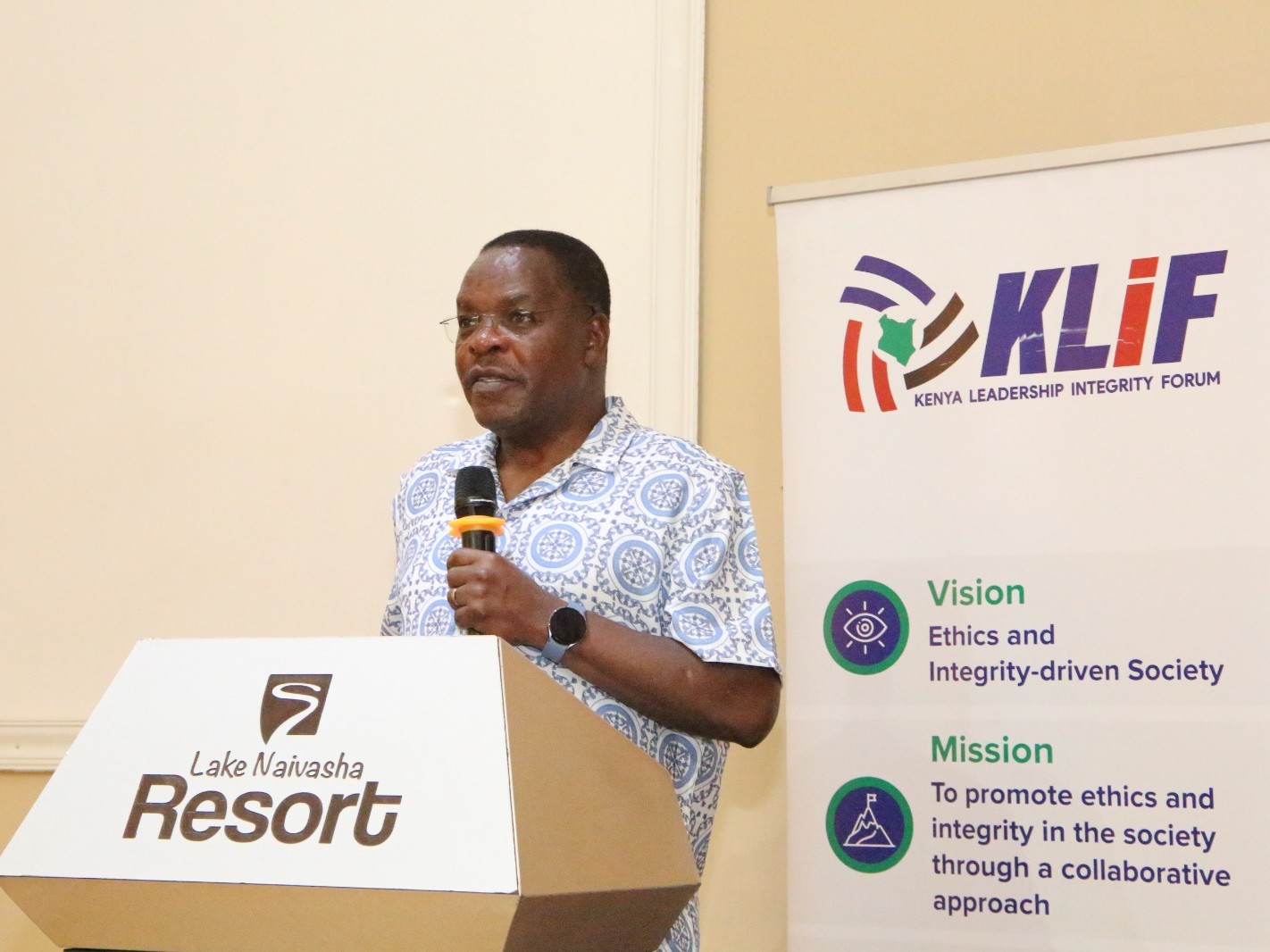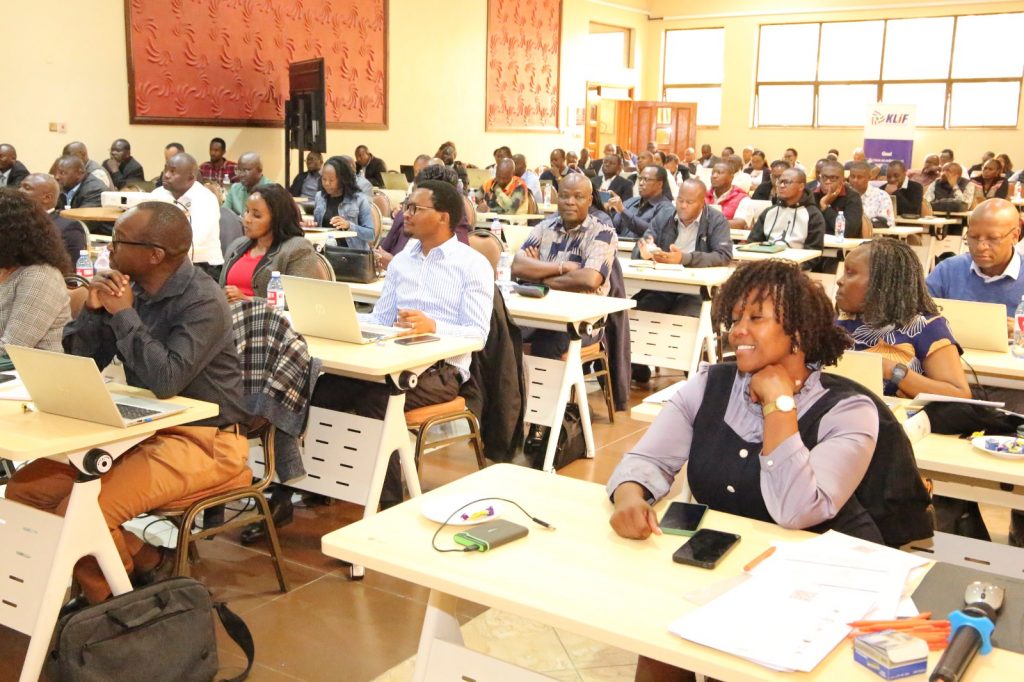KLIF strengthens capacity for monitoring and evaluation of Kenya Integrity Plan

23:10:2025: The Kenya Leadership Integrity Forum (KLIF) has convened a stakeholders’ workshop aimed at enhancing the capacity of Sector Coordinating Committees (SCCs) to effectively monitor and evaluate the implementation of the Kenya Integrity Plan (KIP).
The workshop, currently underway at the Lake Naivasha Resort, brings together representatives from both the public and private sectors drawn from the various KLIF sectors. The engagement seeks to deepen participants’ understanding of their roles in Monitoring and Evaluation (M&E), a key component in tracking progress, ensuring accountability, and promoting transparency in the delivery of anti-corruption and integrity-building initiatives.
According to KLIF, the training underscores its commitment to fostering collaboration among stakeholders and ensuring that the KIP is implemented effectively through informed and empowered sectoral leadership.
Delivering the keynote address titled, ‘Is Leadership Essential to Success?‘ the Chairperson of the Ethics and Anti-Corruption Commission (EACC), Dr. David Oginde, emphasized that leadership remains the defining factor in achieving institutional and national success.
“Everything rises and falls on leadership,” Dr. Oginde remarked, quoting renowned leadership author John Maxwell.

Drawing from the analogy of piloting and flying an airplane, Dr. Oginde likened leadership to a structured process that involves planning the journey, navigating challenges, mobilizing a team, maintaining accountability through a control tower, and recognizing that every action — like a flight’s black box — contributes to one’s legacy.
He said that effective leadership is not about personal control but about building systems, careful planning, and empowering others to sustain the mission.
“Integrity is the core value for success in any form of leadership,” he noted, urging stakeholders to champion ethical practices within their sectors and to take concrete, measurable steps to address corruption challenges.
KIP, he reiterated, serves as the national roadmap for promoting ethics, integrity, and good governance across all sectors, emphasizing the importance of collaboration, accountability, and sector-driven approaches in advancing the country’s anti-corruption agenda.
The workshop provides a platform for stakeholders to share experiences, review progress, and strengthen coordination mechanisms to ensure that integrity reforms are not only planned but also implemented and measured effectively.
“This engagement reflects a shared national commitment to strengthening the fight against corruption through informed leadership and coordinated action,” a KLIF official noted.
As the sessions continue, participants are expected to develop sector-specific strategies to enhance monitoring and evaluation of the Kenya Integrity Plan, ensuring that progress is not only tracked but also translated into tangible governance outcomes.

